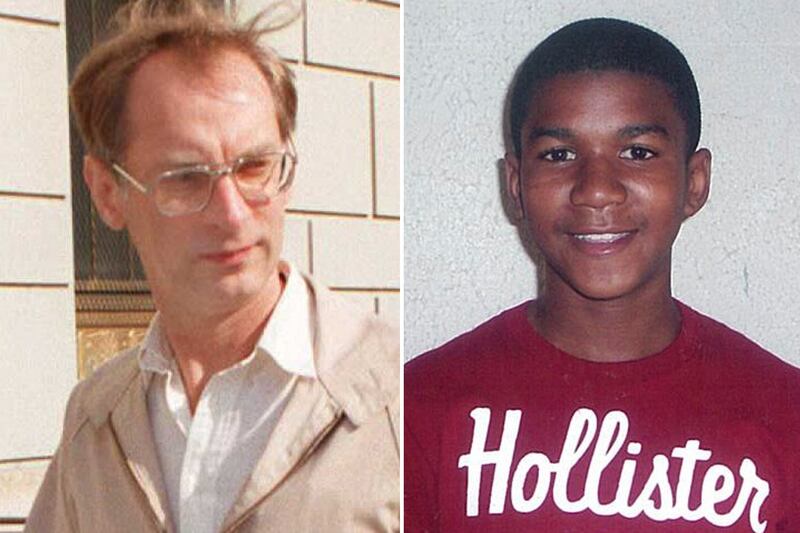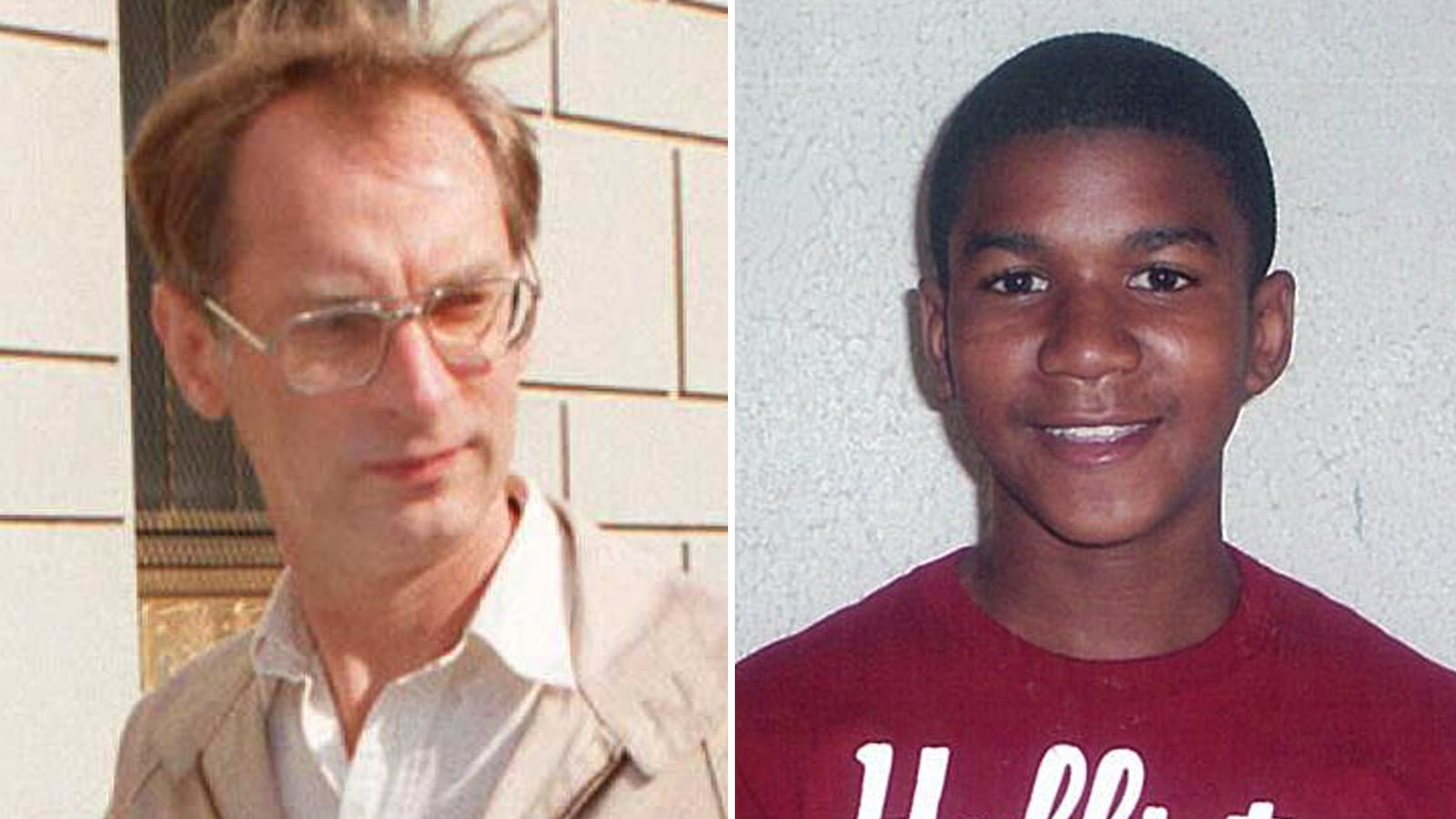Bernhard Goetz hasn’t made up his mind about George Zimmerman. “I don’t know if Zimmerman was a good guy or a bad guy,” Goetz says of the Florida man acquitted of second-degree murder and manslaughter charges for fatally shooting 17-year-old Trayvon Martin. On the other hand, he says in a phone interview with The Daily Beast, “I’m convinced Trayvon was a bad guy.” He does not elaborate.

Goetz, approached outside his apartment before the verdict, had told the Beast he was “surprised the same thing is happening 30 years later” to Zimmerman—Goetz stood trial in 1985 for shooting four young black men on a New York City subway train. Goetz was convicted only of criminal possession of a weapon in the third degree and served just eight months.
So he knows, he says on the phone, a little about what it’s like to walk around in Zimmerman’s shoes now, following the acquittal. “There was a lot of hatred directed at me, just like there was in Zimmerman’s face,” he says. “I carried a gun before the incident, and I had even more of a need to carry a gun after the incident. Saved my life a couple of times.”
Goetz clearly has conflicting thoughts and emotions about his own case, the Zimmerman case, and any attempt to compare the two. One moment he’s trying to get off the phone (“Look, I’m rather busy …”), and the next he’s noting a complexity in the Zimmerman case that perhaps only a man of his experience would think to make (“People automatically take the position, well, if you’re the victim and you get the shit beaten out of you, well, then you’re a good guy. But if you’re in the unusual case where the victim turns on the aggressor and fucks up the aggressor, then there’s the question, is the original victim a good guy or a bad guy?). And the next minute he’s calling the whole Zimmerman case a total waste of time, “orchestrated bullshit by the left.”
Still, Zimmerman gets high marks from Goetz for the way he conducted himself in and out of court. “Zimmerman himself had a good approach,” Goetz says. “He did something different from me: he kept his mouth shut, he let his attorney do the talking.”
“Anyone, any type of story, it doesn’t have to be a crime victim, you don’t have to let yourself be food for the media. Zimmerman’s probably better off. He doesn’t say a damn thing, and then he can sell the story afterwards.”
As for the trial itself, however, Goetz insists that it was blown out of proportion by the press, along with the public reaction to the verdict. He takes particular issue with the notion that protests around the country amount to much. “There isn’t a public outcry,” he says. “What you call the public outcry, that doesn’t represent white America, that doesn’t represent black America. What it does represent, it represents the socialist party in the United States. That’s all. So anyway, that’s your public outcry.
“The country really has better things to be concerned about than this phony story,” he says. “There are certainly more important things going on than somebody killing a thug, whether it’s a good guy or a bad guy killing a thug.” Even worse, he complains, “America is focusing on the wrong issue in this particular story. What they should be focusing on is prosecutorial misconduct.”
If people want to make America a better place, Goetz says, “they should investigate Zimmerman’s prosecutor for acting unethically. That would make the world a better place.”
Angela Corey, the Zimmerman trial’s prosecutor, was unethical and politically motivated, according to Goetz, but not, he says, at all unique. He lumps her in with the prosecutors in the cases against the Duke lacrosse team, President Bill Clinton, and, yes, Goetz himself. “There should be a petition in Florida,” he says, “and they should get a million Florida residents to sign it, requesting that a prosecutor be appointed to look into the conduct of Zimmerman’s prosecutor. Zimmerman’s prosecutor should be disbarred.”
These days Goetz himself no longer carries a gun, not because he’s changed, but because his city has. “New York City, it’s a safe city now,” he said. “It’s unbelievable” how bad things were in the ’80s, he insists. “People’s attitude towards the future of New York you could get from seeing the movie Escape From New York. It sucked.” All that changed in the intervening decades. “The whole city’s safer,” says Goetz.
“There’s one thing, though—life is not as exciting in the city. There was all that danger on the streets. Everybody had their adrenaline going. The city was more exciting. Life was more exciting. I’m not saying that’s a good thing, I’m just noting that.”




